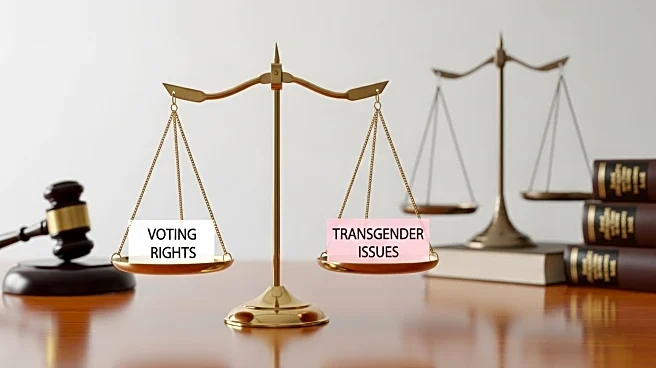What's Happening?
The Supreme Court is set to hear several significant cases this fall, including those related to voting rights, transgender rights, and presidential powers. Key cases include challenges to state laws on conversion therapy, the creation of Black majority districts, and the president's authority to impose tariffs. These cases will address fundamental questions about civil rights, state versus federal authority, and the limits of executive power. The outcomes could have far-reaching implications for U.S. law and society.
Why It's Important?
The Supreme Court's decisions in these cases could redefine legal standards in areas such as free speech, electoral representation, and executive authority. The rulings may impact the rights of marginalized groups, including LGBTQ+ individuals and racial minorities, and influence the balance of power between state and federal governments. The court's conservative majority will play a crucial role in shaping these outcomes, potentially setting new precedents that could affect future legal and political landscapes.
What's Next?
As the court hears arguments and deliberates on these cases, stakeholders from various sectors, including civil rights organizations, state governments, and the federal administration, will be closely monitoring the proceedings. The decisions, expected later in the term, will likely prompt reactions from political leaders and advocacy groups, potentially leading to further legal challenges or legislative responses. The court's rulings could also influence public opinion and voter behavior in upcoming elections.











